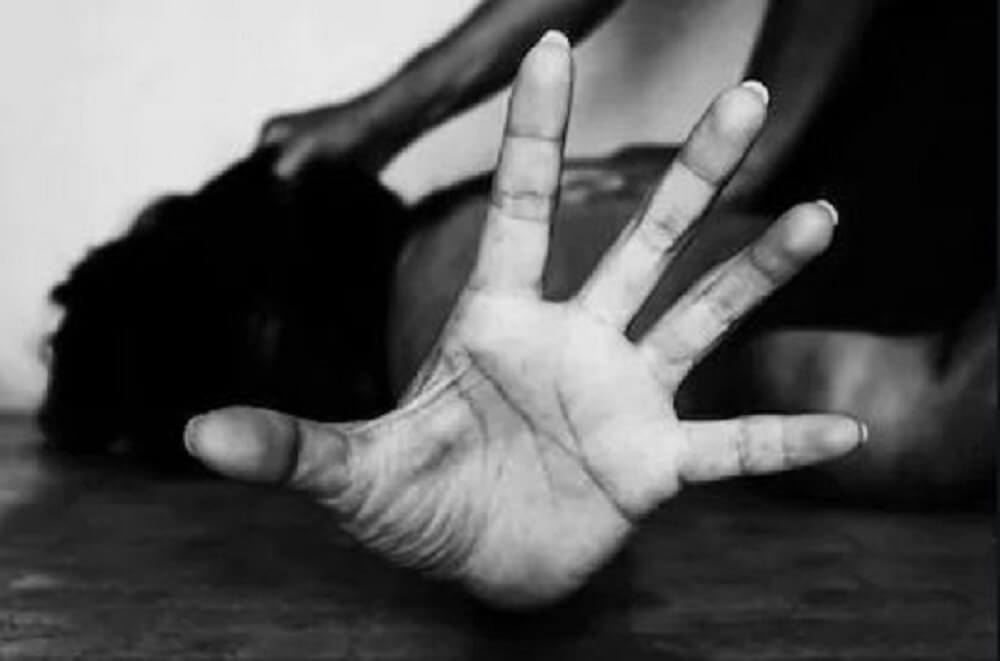OPINION: Ending Violence Against Women Campaign: Action Speaks Louder Than Words

On November 25, 2024, Nigeria joined the rest of the world to commemorate the International Day for the Elimination of Violence Against women. It marked the commencement of 16 days of activism against Gender-Based Violence (GBV) to step up campaign for the promotion and protection of women’s rights and the advancement of gender equality consistent with declarations of the 1995 International Women’s Conference in Beijing.
In Nigeria, the commencement of the 16 days of activism was remarkably significant. On that fateful day, a coalition of principal officers of the House of Representatives led by Speaker Tajudeen Abbas, Honourable Minister for Women’s Affairs and Social Development, Imaan Suleiman-Ibrahim and her counterpart in the Ministry of Youth Development, Ayodele Olawande left the comfort of their cozy offices and marched on the streets of Abuja to demand a stop to violence against women and girls in Nigeria.
The action of the federal lawmakers and cabinet members shows commitment to the cause of the long-suffering Nigerian women and offers new vistas of hope for their liberation from all forms of abuse and molestation in the family, community, workplace and other spaces where they coexist with the opposite gender. Moreover, the solidarity displayed recently by the Nigerian authorities suggests that they are not unaware of the agony women go through on account of an increasing spate of GBV in the international community. In a report released in March 2024, the World Health Organisation (WHO) notes that about 30 percent of women around the world have been subjected to physical and/or intimate partner violence in their lifetime. In the report, the WHO further observes that 38 percent of murder cases are as a result of intimate partner violence, and, therefore, calls for urgent global action to stem the growing tide of violence against women.
In the Nigerian society where male chauvinism is the order of the day, it is common place to find rampant cases of GBV. Fortunately, the Nigerian authorities have taken some commendable steps to come to the rescue of women with the enactment of laws that prohibit violence against them. The laws include the Criminal and Penal Codes that outline offences related to violence against women such as rape, assault and kidnapping. The Violence against Persons (Prohibition) Act (VAPP) 2015 is particularly most welcome. It criminalises various forms of violence against women, including domestic violence, sexual assault, and harmful traditional practices against women in all spheres of the Nigerian society. Obviously, these laws were enacted to bring violence against women to its barest minimum or end it completely, if possible, in Nigeria. Sadly, the existence of these laws has not brought succour for victims of GBV due to their poor implementation in a largely patriarchal society governed by the traditional norms of gender stereotyping.
It is gratifying to see a reinvigorated campaign against the constant abuse of the human dignity of women and girls in Nigeria. However, it is also important to point out that the people’s political representatives and other government officials have been part of the ugly narrative. They live in communities where they exert enormous influence on public opinion and decision-making, but contribute little to end all forms of traditional practices that encourage and promote various forms of violence against women and girls. Moreover, the Nigerian state itself, superintended over by the political representatives, has not done much to address structural injustice, which is a deeper dimension of violence against women. Structural violence against women relegates them to a position of subservience, and prevents them from active participation in decision-making. It is this precarious state of existence that makes women and girls more vulnerable to physical violence in the Nigerian society and other parts of the larger international community.
Structural violence against women breeds what Diana Pearce aptly coined “feminisation of poverty” in the 1970s. The concept of feminisation of poverty maintains that there is a higher incidence of poverty among women than men due to exclusionary policies implemented at varying degrees in the international community. In the face of such exclusionary policies, women are disproportionately affected by poverty, and have become, therefore, the poorest of the poor on planet earth. Several decades later, in 2005, the Department for International Development (DFID) produced a report showing that women accounted for nearly 70 percent of the 1.2 billion people living in extreme poverty across the world at the time. In the report, DFID rightly observes that lack of economic opportunities in the family, market economy and the state impoverishes women.
There is no gainsaying the fact that poverty deepens with increasing unemployment rates all over the world. In a 2013 survey carried out on gendered impacts of onshore oil and gas production in developing countries, the World Bank observes that cultural stereotypes influence the employment policies of oil companies which favour men over women. Relying on government records and interviews conducted with community members in Azerbaijan, Peru and Papua Guinea, findings in the study show that at each point in time, available jobs were referred to as “men’s work.” Consequently, women were discouraged to apply for employment, even in situations where they possessed the requisite qualifications.
The same scenario is obtainable in Nigeria where women’s participation in the formal sector remains abysmally low. In 2020, PwC benchmarked women’s participation in the formal sector of the Nigerian economy at 23 percent. The implication is that the vast majority of women are confined to the informal sector to take up casual, low-skilled and low-paid jobs due to constraints such as lack of education and opportunities available to their male counterparts.
Needless to say, women are victims of a political economy of violence that denies them equal access to the social and economic rights men enjoy. This discrimination is a function of unequal gender power relations informed by obnoxious customs and traditions that the Nigerian society has been reluctant to repudiate. Consequently, women are languishing under structural violence which, as earlier observed, is a deeper dimension of the debasement of their humanity. The 2023 Women, Peace and Security (WPS) Report ranks Nigeria as the 16th most hostile country for women to live in. The WPS Report, a survey of 177 countries, captures 13 indicators, including education, employment laws, and organised violence. In the 177 countries surveyed for the report, Nigeria ranks 162nd in terms of women’s inclusion, justice and security. It is interesting to note that Nigeria’s ranking in the 2023 WPS Report is a significant decline from the 2021/2022 ranking of 130th out of 177 countries surveyed in the report.
Admittedly, the Nigerian government has made commendable efforts to offer women a new lease of life, particularly with the introduction of laws intended to end all forms of discrimination against them. However, there are some fifth columnists in the parliament who are working tirelessly to jeopardise the campaign for women’s liberation. This is evident in the rejection of the Gender and Equal Opportunities bill which was introduced in the senate in March 2016 as a proposed legislation to end discrimination and violence against women. Specifically, the anticipated Gender and Equal Opportunities law seeks to guarantee equal opportunity for women and men in employment, inheritance, education, political representation etc. Unfortunately, some senators rejected the proposed law on the premise that the 1999 constitution already provides for equal opportunities for all citizens of the Federal Republic of Nigeria. But the stiff opposition to the proposed law fails to take cognisance of the fact that although section 42 of the 1999 constitution upholds the right to freedom from discrimination as a fundamental human right, it does not guarantee that right as an absolute right without any qualification.
In 1985, Nigeria became signatory to the 1979 UN Convention on the Elimination of All Forms of Discrimination against Women (CEDAW). Unfortunately, the country has refused to domesticate CEDAW which is one of the most important UN conventions on human rights. Meanwhile, the passage of the Gender and Equal Opportunities Bill would have provided an opportunity for the country to domesticate CEDAW. The challenge before all relevant stakeholders, including civil society organisations, is to build a formidable synergy towards achieving the goal of restoring the dignity of women and girls in Nigeria.
On the eve of the 30th anniversary of the Beijing Declaration on women’s rights, there is an increased momentum in the campaign to advance their cause globally. It is expected, therefore, that the Right Honourable Abbas-led House of Representatives reaches out to the senate to ensure that the proposed Gender and Equal Opportunities legislation sees the light of day in the National Assembly. Beyond enacting the envisaged law, the lawmakers have the obligation to collaborate with the executive branch of government to ensure its effective implementation. This course of action has become imperative for one obvious reason. History tells us that women are an invaluable asset in the struggle for an existence in the life of nations, and their lives matter.
Tekena Amieyeofori (Ph.D), Journalist and Conflict Scholar, writes from Abuja.
Disclaimer: This article is entirely the opinion of the writer and does not represent the views of The Whistler.
OPINION: Ending Violence Against Women Campaign: Action Speaks Louder Than Words is first published on The Whistler Newspaper

